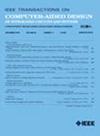Page Type-Aware Full-Sequence Program Scheduling via Reinforcement Learning in High Density SSDs
IF 2.9
3区 计算机科学
Q2 COMPUTER SCIENCE, HARDWARE & ARCHITECTURE
IEEE Transactions on Computer-Aided Design of Integrated Circuits and Systems
Pub Date : 2024-11-06
DOI:10.1109/TCAD.2024.3444718
引用次数: 0
Abstract
Full-sequence program (FSP) can program multiple bits simultaneously, and thus complete a multiple-page write at one time for naturally enhancing write performance of high density 3-D solid-state drives (SSDs). This article proposes an FSP scheduling approach for the 3-D quad-level cell (QLC) SSDs, to further boost their read responsiveness. Considering each FSP operation in QLC SSDs spans通过高密度固态硬盘中的强化学习实现页面类型感知的全序列程序调度
全序列程序(FSP)可以同时对多个位进行编程,从而一次完成多页写入,自然而然地提高了高密度三维固态硬盘(SSD)的写入性能。本文针对三维四层单元(QLC)固态硬盘提出了一种 FSP 调度方法,以进一步提高其读取响应速度。考虑到 QLC SSD 中的每个 FSP 操作都跨越四种不同类型的 QLC 页面,而这些页面的读取延迟各不相同,因此我们将四页应用数据与合适的 QLC 页面相匹配,并通过 FSP 的一次性程序将它们一起刷新。为此,我们采用强化学习方法,根据历史访问频率和相关请求大小将(缓存)应用数据分为四类。这样,经常读取的数据就可以映射到访问延迟较小的 QLC 页面上,而其他数据则可以刷新到速度较慢的 QLC 页面上。然后,我们可以将四类不同的数据页分组,并通过 FSP 操作将它们一起刷新到三维 QLC SSD 的四页单元中。此外,还触发了一种主动重写方法,将热读数据与缓存数据分组,形成一个 FSP 单元。通过在多个真实磁盘跟踪上进行一系列仿真测试,我们发现所提出的机制能显著提高读取响应速度。
本文章由计算机程序翻译,如有差异,请以英文原文为准。
求助全文
约1分钟内获得全文
求助全文
来源期刊
CiteScore
5.60
自引率
13.80%
发文量
500
审稿时长
7 months
期刊介绍:
The purpose of this Transactions is to publish papers of interest to individuals in the area of computer-aided design of integrated circuits and systems composed of analog, digital, mixed-signal, optical, or microwave components. The aids include methods, models, algorithms, and man-machine interfaces for system-level, physical and logical design including: planning, synthesis, partitioning, modeling, simulation, layout, verification, testing, hardware-software co-design and documentation of integrated circuit and system designs of all complexities. Design tools and techniques for evaluating and designing integrated circuits and systems for metrics such as performance, power, reliability, testability, and security are a focus.

 求助内容:
求助内容: 应助结果提醒方式:
应助结果提醒方式:


